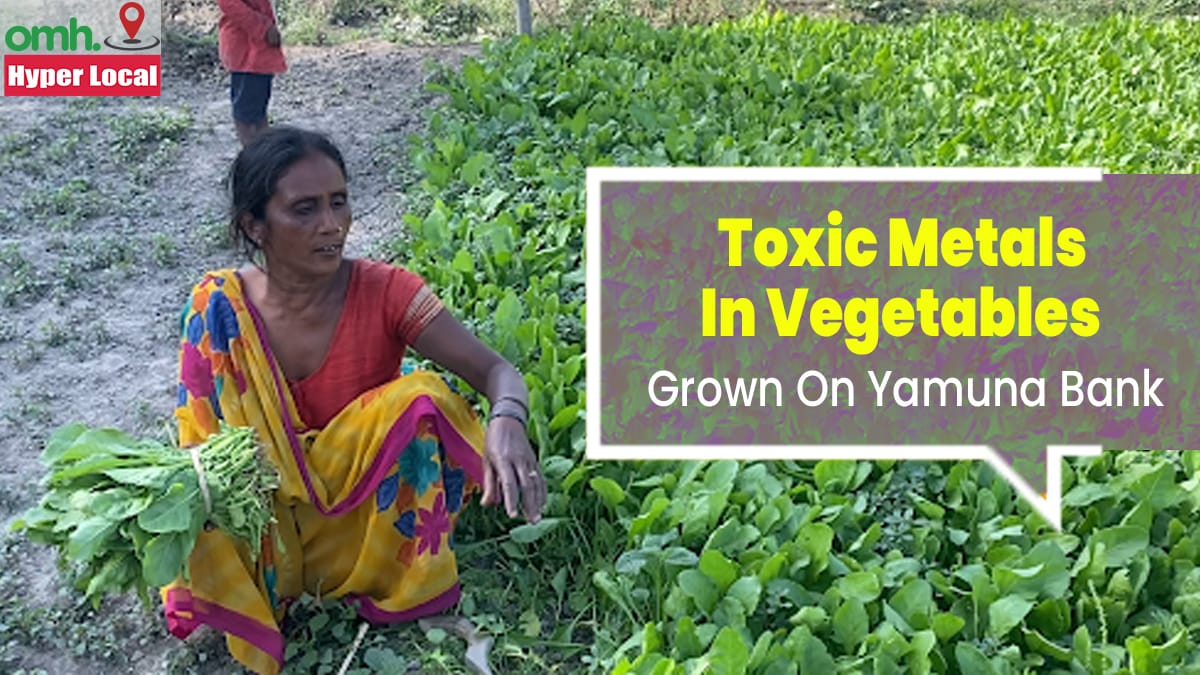
As a part of Onlymyhealth's campaign #OMHHyperLocal which covers health issues at a grassroot level, the Onlymyhealth team visited the farms on the banks of Yamuna in Delhi, to scrutinise the safety of vegetables grown there.
Table of Content:-
The Onlymyhealth team received a tip that the vegetables grown on Yamuna Bank in Delhi are irrigated and washed using the water from the toxic Yamuna river. The residents of Delhi do not need to look at scientific research or lab reports to know just how unsafe the water of Yamuna is in Delhi. It is that apparent.

Also Read: Onlymyhealth Presents #OMHHyperLocal: Scrutinising The Safety Of Vegetables Grown On Yamuna Bank
Onlymyhealth Team Visits Farms On Yamuna Bank
According to past reports, the vegetables grown on Delhi's Yamuna banks contain heavy metals that may be toxic for those who consume these vegetables.
Upon visiting the Yamuna Banks, the Onlymyhealth's team spoke to the farmers who informed them that they have been taking the necessary measures to maintain the safety of the vegetables they are growing. However, since these vegetables are grown on the Yamuna Bank, the team suspected if some of the heavy metals present in Yamuna's water seep into the vegetables being grown on the banks.
A research report from the University of Technology and Applied Sciences in 2023 highlighted that the Yamuna river's pollution is primarily caused by human actions. Approximately 80% of urban waste in the country flows directly into rivers like the Yamuna, leading to severe contamination. Consequently, many of these water sources have pollution levels surpassing safe limits for bathing. This contamination not only endangers humans but also poses a threat to animals, birds, and aquatic life.
The team collected samples of Spinach and Radish, and submitted them for lab testing.
Also Read: Home Hacks To Find Adulteration In These 8 Foods As Told By Public Health Nutritionist Swati Bathwal

Here's What Lab Reports Revealed
The team submitted the Spinach and Radish samples to Merieux NutriSciences to test them for four heavy metals, namely Lead, Nickel, Cadmium, and Mercury.
The lab reports revealed that all four heavy metals had significant deviation from the permissible Limit of Qualification (LOQ), but Mercury in particular was found to be below the limit of qualification for both Radish and Spinach. Here's a breakdown of the lab report:

Sample: Spinach
The LOQ for all four heavy metals is 0.01mg/kg. Here's what the sample showed:
- Lead: 1.33mg/kg
- Cadmium: 0.03mg/kg
- Mercury: Below Limit of Qualification
- Nickel: 0.13mg/kg

Sample: Radish
The LOQ for all four heavy metals is 0.01mg/kg. Here's what the sample showed:
- Lead: 0.06mg/kg
- Cadmium: 0.03mg/kg
- Mercury: Below Limit of Qualification
- Nickel: 0.06mg/kg
With this the lab report made it apparent that the vegetable samples had a higher level of these four heavy metals. These same vegetables are sold in the markets surrounding Yamuna Bank for human consumption. The next step now is to see how these levels of heavy metals nickel, lead, mercury, and cadmium affect those who are eating these vegetables, for which the Onlymyhealth team spoke to experts and doctors. Watch this space to see what the team discovered and tips to mitigate the impact of the vegetables grown on Yamuna Bank.
How we keep this article up to date:
We work with experts and keep a close eye on the latest in health and wellness. Whenever there is a new research or helpful information, we update our articles with accurate and useful advice.
Current Version
